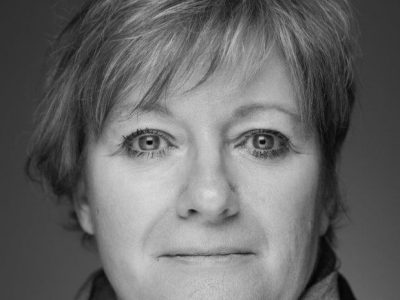Our People Feature: Deborah Archibald, Director ERGP

When the world wants expertise on the mining and oil and gas industries, it comes calling at the University of Calgary’s School of Public Policy.
Deborah Archibald, a geologist and former assistant deputy minister for resources in the Government of the Northwest Territories (GNWT) , is the director of the SPP’s Extractive Resource Governance program (ERGP). “We work with partner jurisdictions … We support them to develop their fiscal and regulatory governance framework, regulation, policies, strategies, to create frameworks that will assist them in responsibly and sustainably developing their natural resources,” Archibald says.
Her staff is currently working in Mexico as part of a five-year program to to identify ways to reduce product loss from pipelines. “They lose 20 per cent per day of oil shipped in a pipeline. We are helping them find ways to reduce those incidences of loss, perhaps through legislation and regulation,” Archibald says.
Her program is also just wrapping up another five-year project in Mongolia, through a partnership with Agriteam Canada Consulting Ltd.
“Mongolia wants economic development. We are supporting Agriteam to help Mongolia do that through the development of their mineral and petroleum resources. We’ve had workshops for the government of Mongolia on sovereign wealth funds and heritage funds,” Archibald says. Part of ERGP’s work there involved a five-day boot camp on public engagement and consultation. Canadians take public consultation for granted, but in Mongolia, it’s a whole new concept and ERGP staff had to start from scratch.
“Mongolia was occupied for decades by Russia and is landlocked between Russia and China. They have no experience doing public engagement, but they’re reforming their laws on mining and petroleum development, so now they have to consult,” Archibald explains.
“Our team was contracted to deliver a one-week boot camp on how to do public engagement and consultation. We helped them identify their stakeholders and assisted them to develop a plan to go out and consult on proposed changes to their Mining Law. .
Part of the training involved a mock exercise in a town hall consultation. “I had one person play a tourism operator concerned about losing land. Another was concerned about the impacts on water, and another was a farmer concerned about land impacts,” she says.
Archibald formerly worked as a mineral exploration and mine geologist for 10 years at various operations in Ontario and the NWT. She then left the private sector to work for the GNWT as a geologist.
“I quickly discovered I had a deep interest in policy. I became a policy analyst and took on progressive responsibility, up to assistant deputy minister. It was very interesting and exciting,” she says. Her job involved working closely with a team that was transferring responsibility for mining and oil and gas legislation from Ottawa to Yellowknife. “For me, it was an honour and privilege to be involved in an initiative that was so transformative for the people of the NWT,” she says.
Coming from government to The School of Public Policy was the perfect fit for her because she could bring with her a wealth of experience in governance and regulatory frameworks. And in the process of teaching consulting to government and industry all over the globe, ERGP’s work sometimes helps nurture some nascent seeds of democracy.
“They’re finding more and more that because of social media their residents are more organized and they can influence outcomes. I was in Kenya in June and we visited with four different organizations. They all said they need to learn how to do public engagement; they are not getting their projects done because of public opposition,” she said.


